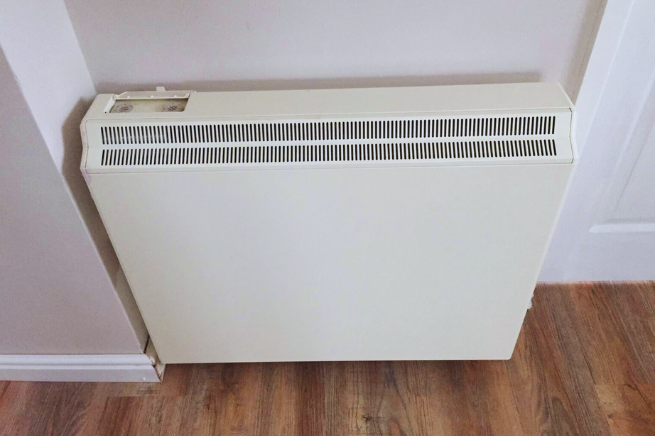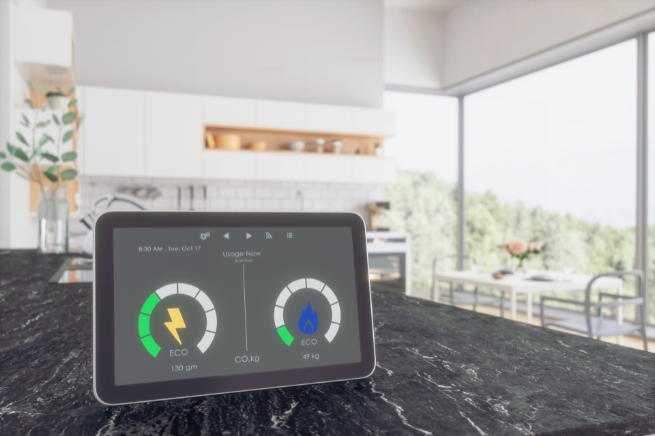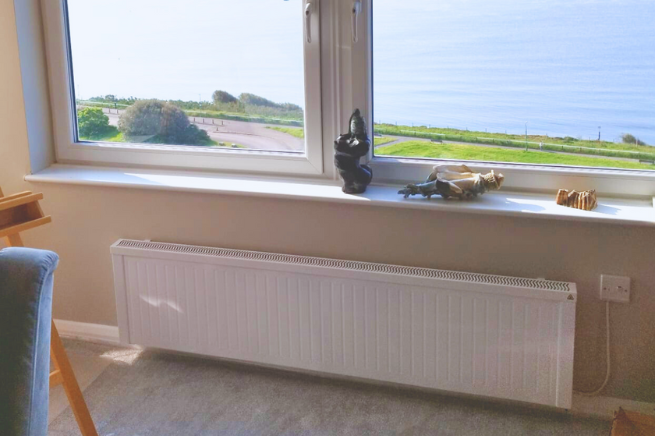
Diving into the world of energy tariffs can uncover some intriguing options, one of which is the Economy 7 tariff, a specific type of off peak electricity tariff. Economy 7 is like a double-edged sword: it offers cheaper electricity rates during the night but charges more throughout the day. Despite this, economy 7 tariffs have become particularly popular among homes equipped with night storage heaters. These systems are designed to make the most of off-peak night time rates, heating up during the night and then gradually releasing warmth throughout the day. It’s advisable to check with your electricity supplier to confirm if you’re suitable for Economy 7 tariffs and to understand the specifics of off-peak hours.
However, while Economy 7 sounds promising, navigating its nuances can be tricky. Night storage heaters, for instance, represent a bit of a gamble. They’re fantastic for utilising lower-cost electricity overnight, but their lack of finesse in controllability can be a drawback. This often results in spaces being too warm in the morning and uncomfortably cool by the evening. It presents a common dilemma: should you endure the cold or face the extra costs of firing up supplementary heating?
As we explore the ins and outs of Economy 7, we’ll shed light on how it works, who it benefits the most, and the considerations one must weigh before diving in. This discussion isn’t just about understanding a tariff; it’s about envisioning how your home’s heating aligns with your lifestyle and budget. If you’re evaluating your heating options and seeking to make informed energy choices, you’re exactly where you need to be. Together, let’s decode the Economy 7 mystery and determine if it’s the right fit for you.
So, you’re familiar with Economy 7, right? It’s far from your average electricity deal—it’s a strategic way to manage and reduce your energy spend. Centred around benefiting from reduced electricity rates during off-peak hours, Economy 7 offers a smart solution for those looking to optimise their energy usage. This approach has become a favourite for its potential to gradually reduce energy bills. However, it’s important to keep in mind that with rising day rates in 2024, without careful usage, costs could surpass those of a standard tariff. It’s all about making those off-peak hours work in your favour. The ‘night rate’ is particularly advantageous for ‘electric vehicle’ owners who can charge their vehicles at lower costs overnight.

Tailored exclusively for homes with night storage heaters, Economy 7 taps into the off peak electricity rates available during the night, allowing these heaters to absorb and store energy when it’s most cost-effective. This tariff is not only beneficial for heating your home but also for heating a ‘hot water tank’ during off-peak hours, providing a cost-effective hot water supply. Built to retain heat, night storage heaters are designed to charge up overnight, using the cheaper electricity, and then gradually release this stored heat throughout the day. However, they’re not exactly the epitome of flexibility. Once they start releasing heat, controlling it based on unexpected warm days can be challenging. Moreover, as the evening rolls in, you might find that the stored heat isn’t quite enough to keep the chill at bay, leaving some homeowners reaching for extra blankets or contemplating alternative heating options.

Getting to grips with the “Economy 7 times” is key to really making the most of this tariff. Think of these as your golden hours—usually kicking in from around 12:00 AM to 7:00 AM. This is when the magic happens, and your electricity rates dip, giving you the chance to heat your home at a fraction of the cost.
But here’s the thing, the exact timing of these hours isn’t set in stone. They can vary a bit depending on where you live and who’s supplying your power. So, it’s a smart move to give your energy provider a quick call or check their website. They’ll have the nitty-gritty details on the specific off-peak times for your area. Knowing this ensures you’re truly in sync with Economy 7’s rhythm and ready to save.
Distinguishing between Economy 7 and Economy 10 meters is important to selecting the optimal energy solution for your household. Economy 7 offers seven hours of reduced electricity rates during the night, which can be beneficial for those who can shift their energy usage to these off-peak hours.
Dual-Rate Tariff: Economy 7 offers two distinct rates—off-peak and peak—providing an approximate 7-hour window of reduced electricity rates. and the rest of the day will have an inflated day rate.
Peak Savings Opportunity: By efficiently utilising the off hours, households can achieve considerable savings on energy bills.
For Specific Heating Systems: Homes with electric storage heaters or the ability to shift energy-intensive activities to cheaper hours can get the full potential of Economy 7.
Three-Tiered Tariff: Economy 10 introduces a three-tiered rate structure, encompassing three off-peak periods and hours.
Extended Off-Peak Opportunities: With off periods spanning around 10 hours, Economy 10 offers greater flexibility for adjusting energy consumption.
Adaptability Advantage: Households with versatile energy usage patterns and the capacity to capitalise on extended off periods can benefit from Economy 10.
For those already using the Economy 7 tariff, there’s an update worth noting: The Radio Teleswitch Service (RTS), pivotal for meters that automatically toggle between peak and off-peak rates, is scheduled for discontinuation by March 31, 2025. This is particularly relevant for meters linked to night storage heaters, which rely on this system to function optimally under the Economy 7 tariff.
If you’re unsure about whether your meter uses RTS technology, you should chat with your energy supplier to find out. They can clarify your meter’s status and discuss the pathway to upgrades or replacements, likely shifting towards a smart meter for improved efficiency and control. Unsure of your supplier? Your network operator can guide you. Staying informed and proactive about these changes is crucial to maintaining an efficient and cost-effective heating solution under Economy 7.
Wondering if Economy 7 is your cup of tea? Well, deciding if this tariff is a fit for you comes down to a few personal factors. Let’s break it down together and see if it lines up with your lifestyle:
Your Daily Routine: Think about when your home buzzes with energy use. If you’re mostly up and about during the day, the potential savings from off-peak electricity rates might be limited. But, if you’re game for running your dishwasher, washing machine, and other big energy users while the world sleeps, you could find Economy 7 fitting into your life like a glove.
Heating Needs: Now, for those of you with electric heating systems warming your homes, Economy 7 could be like finding a hidden treasure. It’s all about charging up those heaters with cheap electricity during the night, then basking in the warmth all day. If that sounds like your heating setup, diving into Economy 7 could cut down your heating bills without skimping on comfort.
Flexibility and Adaptability: Here’s where it gets interesting. Jumping into Economy 7 means being a bit of a night owl with your energy use. Shifting things like laundry or dishwashing to nighttime hours can lead to some pretty neat savings. So, if you’re all about making small changes for bigger gains, Economy 7 might just be the change your energy routine needs.
Energy companies and energy suppliers offer competitive tariffs and support for Economy 7 users, including special deals for electric vehicle owners, making it an attractive option for those looking to optimise their energy consumption and costs.

Curious about saving money with Economy 7? You’re not alone! The lure of lower bills has many people considering this tariff. But, how much you’ll actually save can vary, depending on a few things like how and when you use your energy, and if you’re ready to shake up your routine a bit. Here’s how you can save money with Economy 7:
Embrace Off-Peak Consumption: At its core, Economy 7 is all about making the most of those cheaper, off-peak hours. Think about moving energy-guzzling tasks to the nighttime—laundry, running the dishwasher, heating water, and even charging up electronic devices. By shifting these activities to when rates drop, you’re setting the stage to cut down on your bills in a noticeable way.
Leverage Electric Heating: For those with electric heating and hot water setups, Economy 7 could be a game-changer. Using this tariff to power up your storage heaters when electricity costs less means you can enjoy a warm home and hot showers all day, without the premium price tag. It’s all about timing and making those night hours work for you.
Monitor and Adjust: Keeping an eye on your energy use and how it lines up with Economy 7’s schedule is key. By tracking your consumption and adjusting as needed, you’ll get a clearer picture of how to maximise those savings. It might take a bit of tweaking, but finding the right balance can lead to more efficient use of energy and, ultimately, lower costs.
In a nutshell, making Economy 7 work for you involves a bit of strategy and willingness to adapt. But for those willing to embrace the night owl energy schedule, the savings can be well worth it.
Deciding between Economy 7 and standard energy tariffs? It’s all about what fits your lifestyle and energy needs best. Let’s break it down to help you make a choice that’s right for you:
Economy 7:
Off-Peak Rates: Economy 7 has reduced electricity rates during off hours, incentivising energy consumption during these periods, akin to the concept of off-peak phone calls where lower rates are offered during certain hours.
Optimised for Electric Heating: Households reliant on electric heating systems can leverage Economy 7’s storage heaters to efficiently manage heating costs.
Flexibility Requirement: Realising substantial savings necessitates adapting your routine and energy consumption to cheaper hours.
Consistency in Rates: Standard energy tariffs feature uniform rates throughout the day, providing predictability but potentially missing out on the cost benefits of off-peak rates. check with your energy supplier for possible cheaper rates.
Stable Consumption Patterns: Homes with consistent energy usage patterns may find standard tariffs more suitable, as the need for adapting routines is minimised, use a smart meter for better tracking.

If you’re contemplating a transition from an Economy 7 tariff back to a standard energy tariff, it’s essential to navigate this decision thoughtfully. Several factors warrant consideration before making the switch:
Lifestyle and Routine Changes: Life’s constant changes mean our daily routines can shift, affecting when and how we use electricity. If you’re finding yourself using more electricity during the day thanks to a new schedule, a standard tariff might just fit your life a bit better now. It’s all about matching your energy plan with how you live your day-to-day.
Appliance Usage Assessment: Analyse how your electricity meter and appliance usage aligns with Economy 7 times. If you discover that your high-energy activities are concentrated during peak hours, a standard tariff could potentially offer a more predictable and economical option.
Comprehensive Cost Comparison: Switching your electricity bill from Economy 7 to standard energy involves assessing the financial implications. Conduct a cost comparison by analysing your energy bills under both tariff structures and compare energy tariffs. This approach can provide invaluable insights into the potential cost-effectiveness of transitioning.
Switching tariffs is all about finding what best suits your current lifestyle and energy usage. A bit of reflection on how you use energy throughout your day can guide you to the right choice, ensuring you’re getting the most value out of your energy plan.
When considering Economy 7, it’s essential to weigh its unique characteristics against your lifestyle and energy needs. This tariff, known for its off-peak rate benefits, can indeed offer savings opportunities for specific setups, particularly when aligned with compatible heating systems. However, it’s crucial to acknowledge that not all heating solutions, including ours, are designed to work with Economy 7, highlighting the importance of matching your energy plan to your actual energy usage and appliances.
The essence of making an informed decision lies in understanding your energy consumption patterns. If your home life and energy needs don’t sync up with Economy 7’s night-time savings window, or if you rely on heating solutions like ours that aren’t tailored to this tariff, the anticipated cost benefits might not materialise. This doesn’t diminish the value of Economy 7 for those it suits, but it does underscore the need for a tailored approach to your energy choices.
Choosing an energy supplier becomes about more than just tariffs; it’s about finding a partner that supports your specific energy requirements and offers solutions that genuinely enhance your home comfort and efficiency. While Economy 7 presents an attractive proposition for some, ensuring your energy strategy aligns with your actual needs and the capabilities of your heating system is key.
In essence, while Economy 7 has its place in the energy landscape, it’s not a one-size-fits-all solution. For those of us with heating systems not optimised for this tariff, focusing on alternative ways to achieve energy efficiency and cost savings is crucial. Being informed, considering your lifestyle, and selecting energy solutions that fit your unique situation will always be your best strategy.
Tags: Comparisons.

If you are considering electric heating/electric radiators, then this guide tells you everything you need to know. Discover this modern, sustainable and economical method of heating that gives you complete control and comfort. Download Free Guide now.

*Trust Electric Heating needs the contact information you provide to us to contact you about our products and services. You may unsubscribe from these communications at any time. For information on how to unsubscribe, as well as our privacy practices and commitment to protecting your privacy, check out our Privacy Policy.
Quick installation and a 100 day warmth guarantee. Whether you’re buying one or several radiators, if our radiators don’t heat your room to a minimum of 20 degrees we will undertake to upgrade or replace the radiators free of charge.
Book your free consultation